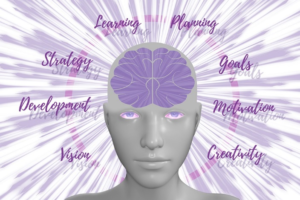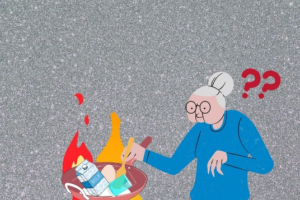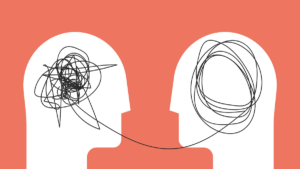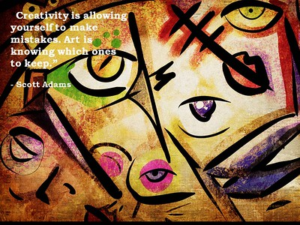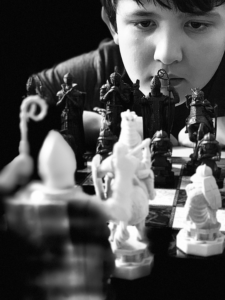Exercise! We hear and read about the importance of including physical activities in our routine almost every day these days. And rightfully so! With the tendency to move towards a sedentary lifestyle in modern times, frequent reminders and prompts to exercise physically have become more important than ever. ‘Use it or lose it!’ goes the popular saying, implying that if we don’t use our muscles and the various parts of our body, we’ll end up losing them. But what about the mental component?

‘The use it or lose it’ principle works the same way for mental activities as well. In a world that is becoming increasingly dependent on technology for every physical and mental need, the game of chess is the perfect solution to train, and thereby retain one’s cognitive functions. While mainstream sports like football and swimming offer a sense of fun and also help train in overall fitness by keeping the entire body active. Chess does the exact thing with our brains. It exercises every neuron as one game of chess has the ability to burn around 580 calories in the body!

Credits: Max Pixel
Researchers have found that chess trains numerous parts of the brain and helps with enhancing its cognitive functioning. In practical terms, Chess helps train the following:
(i) Concentration
A game of chess varies in the respect that it can last between a minute to six hours depending on the format of the play. However, the common factor across all the formats is that it requires intense focus. A minor lapse of concentration can undo hours of hard work. It is also this requirement of focus that allows the player to enter into a state of ‘flow’. It has also been observed that when students get back to their academic studies after playing or practicing chess, they are able to focus better and their time to study and understand concepts is lesser than their non-chess-playing friends

By Bruce Mars
(ii) Improves memory
Playing chess involves many different types of memory. On one hand, there is the rote memory function, just to learn and memorize the different chess moves and openings. However, it isn’t restricted to exercising just one type of memory. It also involves other types of memory like pattern recognition memory. Studies have shown how chess masters hold together thousands of little nuggets of pattern-like memory, similar to how we learn and remember languages. It involves using the working memory when we have to visualize and calculate different moves. It also involves long-term memory, in being able to store different strategic patterns and being able to recall and reciprocate them on board under time pressure. To put it in simple terms, Chess trains memory.
It has also been observed that the game of chess helps in preventing/delaying the onset of medical conditions like dementia and Alzheimer’s in individuals.

Credits: Max Pixel
(iii) Develops empathy
Chess is not just about learning to make moves from our perspective. It also involves anticipating what our opponent would play and using that ability to stay one step ahead. The better someone is at anticipating the opponent’s moves, the better chess player they become, which in turn translates to developing empathy in the outside world as a chess player can effectively anticipate the emotions of other individuals and understand their perspective.

Source: Wikimedia Commons
(iv) Boosts creativity
‘Imagination is greater than knowledge is a famous quote by Albert Einstein. A chess player knows this by instinct, as no amount of pre-existing knowledge can overcome the brilliant creativity shown during a chess game. Chess doesn’t just require recalling pre-existing knowledge and reproducing it, it also involves making good use of the combination of pre-existing knowledge to create something new. Research performed on school children has proven that students exposed to chess training came up with more innovative and newer solutions to different problems compared to the group who did not train in chess.
While the game is all about infinite possibilities of moves, with training and practice one learns to neuronal network connections in a way that they can develop they come up with creative combinations of moves.

Twentyfour students, Flickr
(v) Improves strategic planning
It has been widely known that chess as a game is famous for its anticipatory and far-sightedness approach. The basic aim that a chess coach keeps in mind while teaching is to develop long-term thinking capacity in the student. And this habit is inculcated when one starts to plan various strategies in their game, whether it is to plan for taking a piece or planning to break out into a better position or to plan and execute a strategical checkmate.

Credits: Max Pixel
(vi) Leadership Skills
In the recently concluded Global Chess Festival in Budapest, an Indian chess enthusiast Ashwin Subramanian presented his study on how chess as a game builds cognitive skills in an individual and also makes one a better leader or a suitable candidate for management roles in the workplace. While his study was backed by various observations and research on various chess players and grandmasters, a live representation of this was seen in the 44th Chess Olympiad held at Chennai where nearly 400 volunteers were recruited by the government and Indian chess association for the management and conduct of the event that was organized in less than 4months! It was notable that more than 80% of these volunteers were chess players and/or chess coaches and they were able to execute their given roles with minimum training with the most efficiency

Picture Courtesy: Stev Bonhage
(vii) Patience
When a parent enrolls their child in a chess class, their primary goal is to make the child patient through the game and control the impulsive behavior of the child. The basic skillset required to play a game of chess includes patience. Only with patience can one start to develop strategic planning and think for longer times and moves. This skill takes time to develop but is one of the major giveaways and lessons learned from the game that goes on a long way in one’s life.
(viii) Sportsman spirit and Ethics
Just like any other sport, even chess helps build the spirit of sportsmanship as players begin and end by shaking their hands. In elite chess events, it is a very common site that the opponents after finishing their games discuss with each other the potential moves and threats and give each other better ideas that could’ve been a part of the game.
By: Vidhi Karelia

